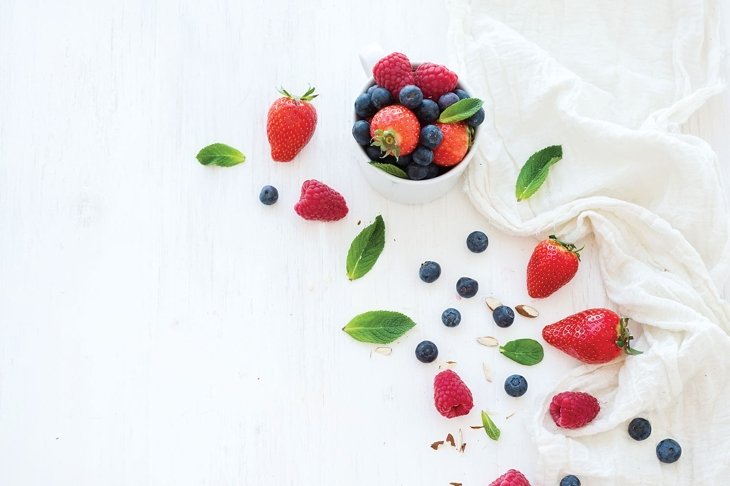
Whether you’re living with cancer or looking to prevent cancer, the choices you make in your everyday eating can have an impact on your long-term health and well-being.
As nutritionists at InspireHealth Supportive Cancer Care centre, one question we’re often asked is, “What is the difference between organic and conventionally grown produce?”
One of the differences is in the way farmers grow their produce. Organic producers use natural ingredients that are safe for human health. Conventional growing practices, on the other hand, can involve the use of synthetically made herbicides, pesticides, and fungicides. Research suggests a possible link between some of these chemicals and certain cancers. Here are some cancer prevention diet tips you may find useful.
Minimize toxins
To decrease your exposure to harmful chemicals, use tools like the Environmental Working Group\’s Dirty Dozen and Clean Fifteen lists.
The Dirty Dozen
When choosing produce from the Dirty Dozen list, like apples, celery, and bell peppers, you can decrease your potential pesticide exposure by choosing the certified organic option when possible.
The Clean Fifteen
With produce like cauliflower, cabbage, and onions on its list, The Clean Fifteen shows us which conventionally grown options have the least amount of pesticides reaching your plate.
With either choice, wash your produce well under cold running water before use as this helps decrease the pesticide residue.
Buy local—and organic
The Dirty Dozen is a great tool that shows us in general what comes along with conventionally grown produce. What would happen, though, if you could actually ask your local farmer about their growing practices?
This is an opportunity we have when we shop at farmers’ markets, local produce stands, or purchase from CSAs (Community Supported Agriculture) weekly box programs. You may be surprised to learn how few chemicals are used in many small-scale local farms that are not necessarily certified as organic.
Produce can vary in the quality and quantity of available nutrients depending on where it is grown. When produce is allowed to ripen before being harvested, this maximizes the nutrient benefit available to us. Even organic produce, if shipped great distances, may have lower levels of important nutrients than locally sourced options, as they need to be picked before they have fully ripened. Whenever possible, choose local and in season.
So what to do in the off-season?
When fresh local produce pickings are slim, there are still ways to benefit from fresh and nutritious local fruit and vegetables.
Check out farmers’ markets
Visit a winter farmers’ market to see how many Canadian produce options can be stored over the winter. Winter squash, rutabagas, onions, carrots, apples, cabbage, and beets can all be commercially stored until spring produce is available.
Freeze the freshness
Freeze local berries and tree fruit during the summer months to enjoy all year long. Commercially frozen produce can also be a good option, as it was picked and frozen when ripe, thereby optimizing nutrients, flavour, and texture.
Preserve local bounty
Consider getting together with friends to do some canning of local produce. If choosing commercially canned foods, look for those stored in glass or BPA-free cans (some research links bisphenol-A in can linings to certain cancers). Be mindful of added preservatives such as sugar, salt, and MSG that may be used in commercial canning processes.
Weigh all the options
When taking a look at our current choices, it’s not about being judgmental—it’s about looking at each scenario and asking “what is the best option for me at this moment?” One day it might be choosing certified organic, another day it may be buying local produce, and yet another day our best option may be the side of cooked, frozen vegetables instead of fries.
Choosing fruits and vegetables doesn’t need to create added stress in our lives. Research shows that eating our fruits and vegetables—as many as we can and with good variety—is a tasty and effective way to help prevent cancer and support our overall health and well-being.

